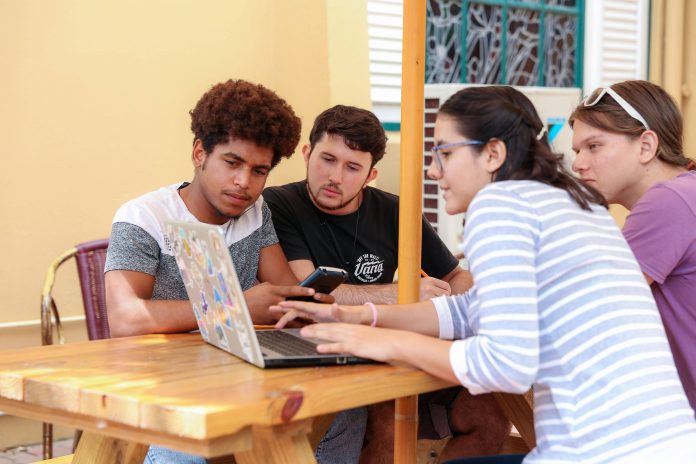Eric Mijts is the developer of SISSTEM which means Sustainable Island Solutions through Science, Technology, Engineering and Mathematics, a new program at the University of Aruba. “Students will on the basis of deep understanding of fundamental sciences, chemistry, physics, biology, GO sciences, mathematics and data sciences develop skills in problem solving for sustainability issues in small island states. It is really solution based, not problem focused.” Think of jobs like sustainability officers, data scientists, analysts for central banks or governments, sustainability managers in the building sector and monument care and positions within WEB, Elmar, renewable energy installations and in the field of electric cars.
“You fit this program if you really see the energy and bio- environmental challenges that we are facing but also the science challenges where we make transitions to a new digital world without having our own data sciences network yet. Creating that expertise is what we stand for,” Mijts explains. “We look for people with an enormous broad background so whether you are into environmental protection or looking for a balance between human and environment or you love data sciences solutions and data minding/network or even building environment and solutions.” The current students find it a challenging program because it is an academic program that confronts you with challenges you did not see or were blind to. “It is quite a right indeed. But our students are full dedicated. We did a project of an energy audit with the Dutch marine barracks and the evaluations of the students were an eye-opener. You see they are understanding what role they could play in society and what actually global footprint is and how to relate this to money, to people and to technologic innovation.” The program shows the value of engaging with stake holders and also to work as a group. They bring their knowledge into practice and involve into the Aruban community which is very important.
Why this program?
Mijts: “We noticed a lack of scientific higher education of technology and engineering. One of the big issues we are facing is that we miss a lot of expertise in implementing solutions for the development of our island. Having a program like SISSTEM in place can really help building the critical capacity for successful implementation of sustainability challenges.” Beside of the bachelor program six Phd candidates started past year and five more will begin in the upcoming months. “This means that you create a network within society because every student has to brand out and so the community will talk about us. We are getting attention, my hope is ten years from now we have a continuous flow of 10, 15, 20 people with that expertise as a basic think-tank of the University of Aruba.”
The new walk
During the Covid-19 period students and teachers remained in communication through google meet and zoom all the time. “We did not have a single delay. We were already working with a digital platform and we agreed on it together to complete all and so we did. Colleagues in Europe tell us our student dedication is fantastic,” Mijts says proud. “For the future we have to reinvent the way we are living. We need to change the way we teach. How? Face to face education will turn into blended learning approaches. We need to facilitate digital class rooms for small groups of students and working internationally will be much easier now. The fundamental role is going to change; Students and teachers need to learn and find gratification and beauty in digital learning and teaching. Teachers need to help students cross that bridge and students will need to be more independent, disciplined and creative.”
For more information about the SISSTEM program: https://www.ua.aw/sisstem/
—————————————————————————————————————————–
SISSTEM offers a 3-year, 180 EC bachelor program in STEM with specializations in bio-environmental sciences, technology and engineering, and informatics and data sciences; a 1.5-year, 90 EC multidisciplinary master program, PhD projects for sustainable development in small island states and a research and development center. The SISSTEM project is the result of a collaboration between the University of Aruba, KU Leuven and the initial phase is funded by the EU as part of the EDF-11 fund.




















